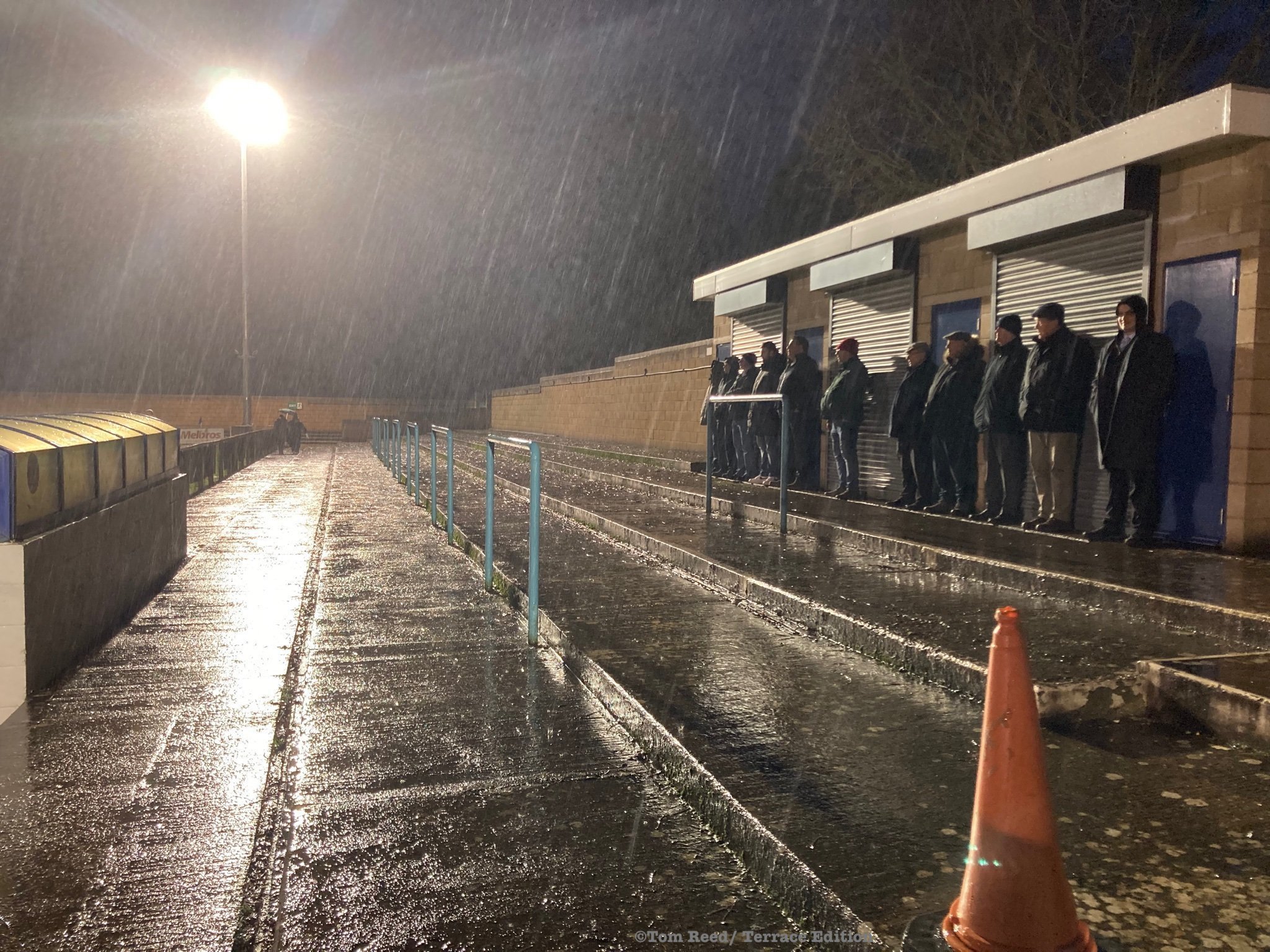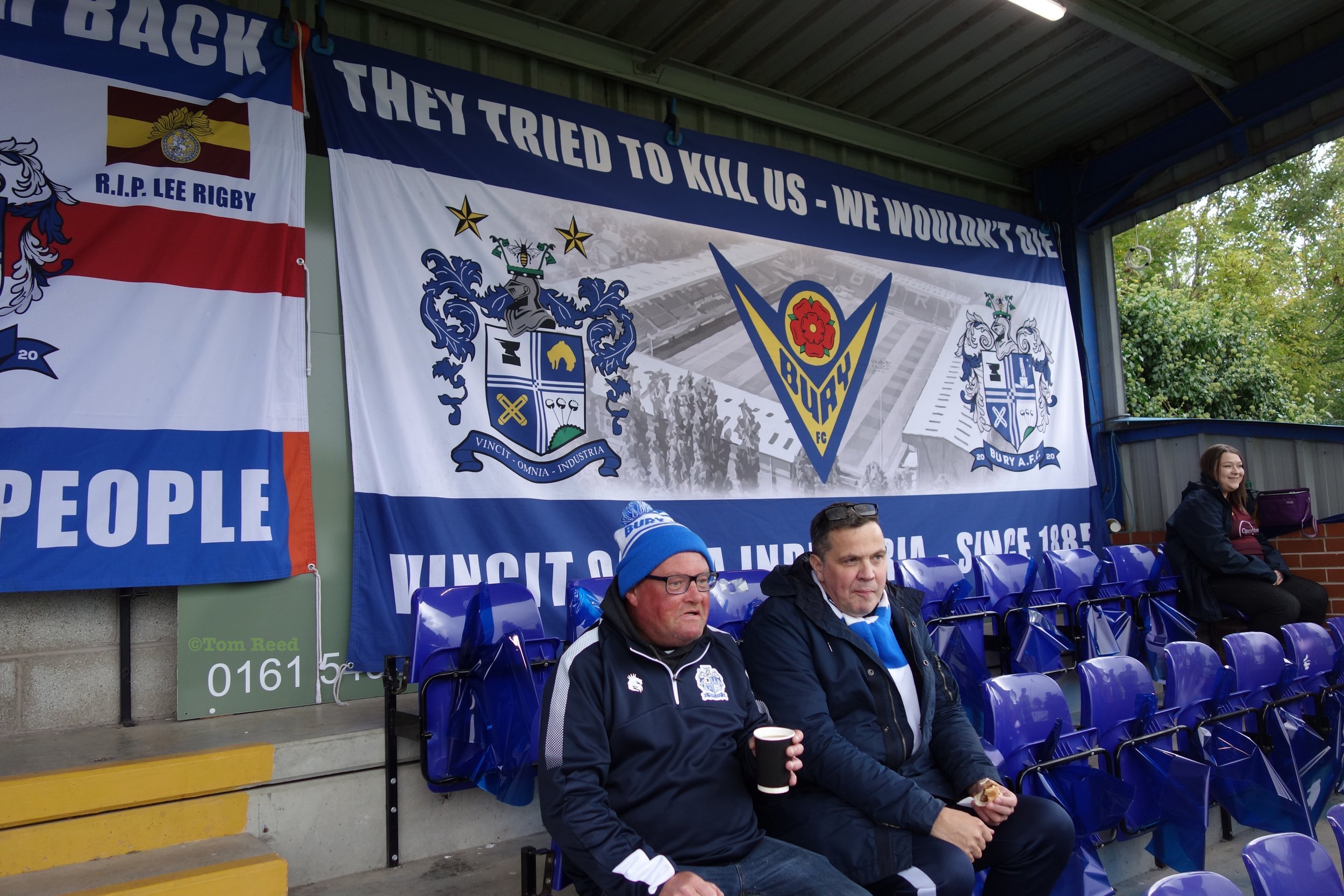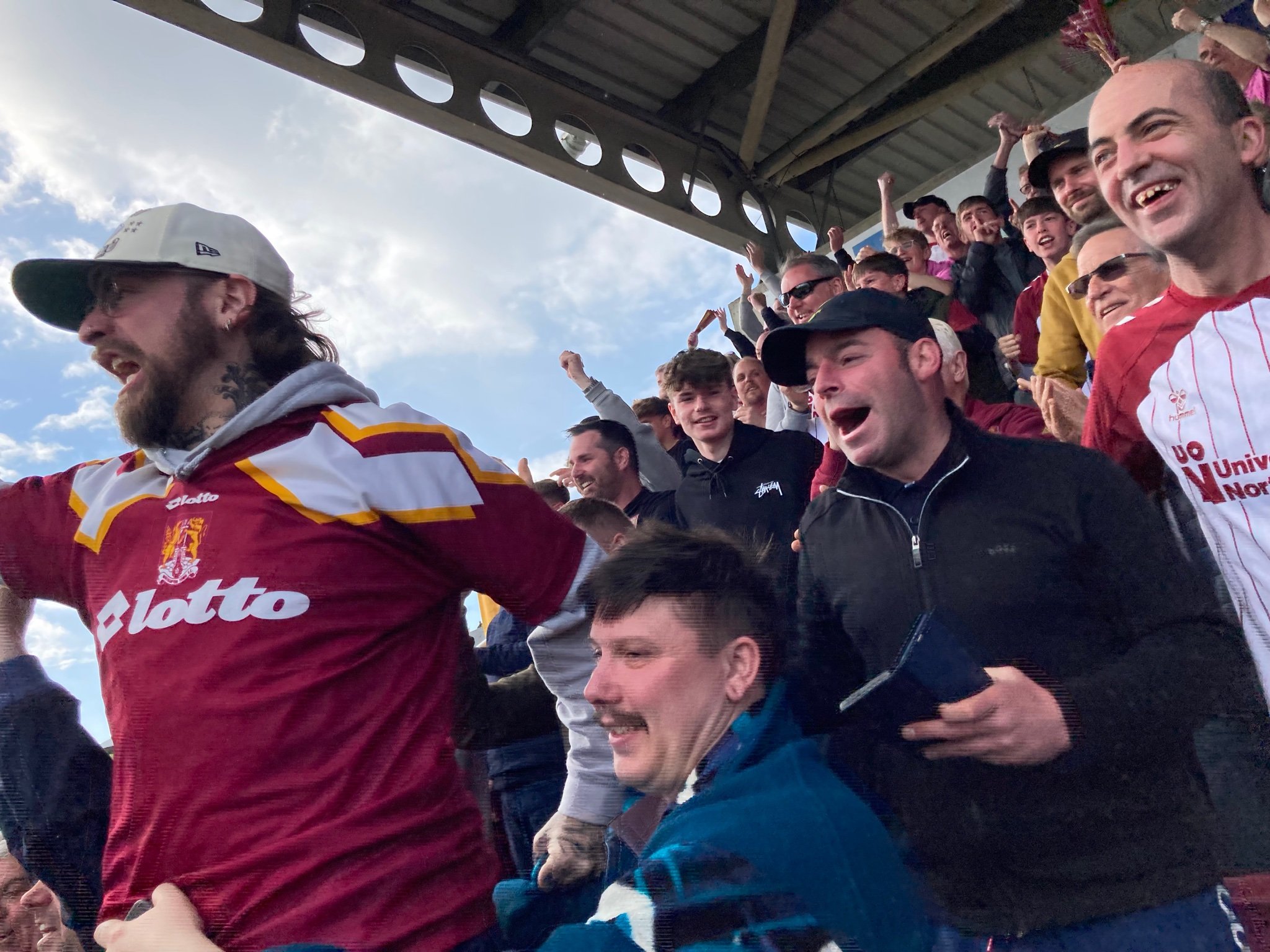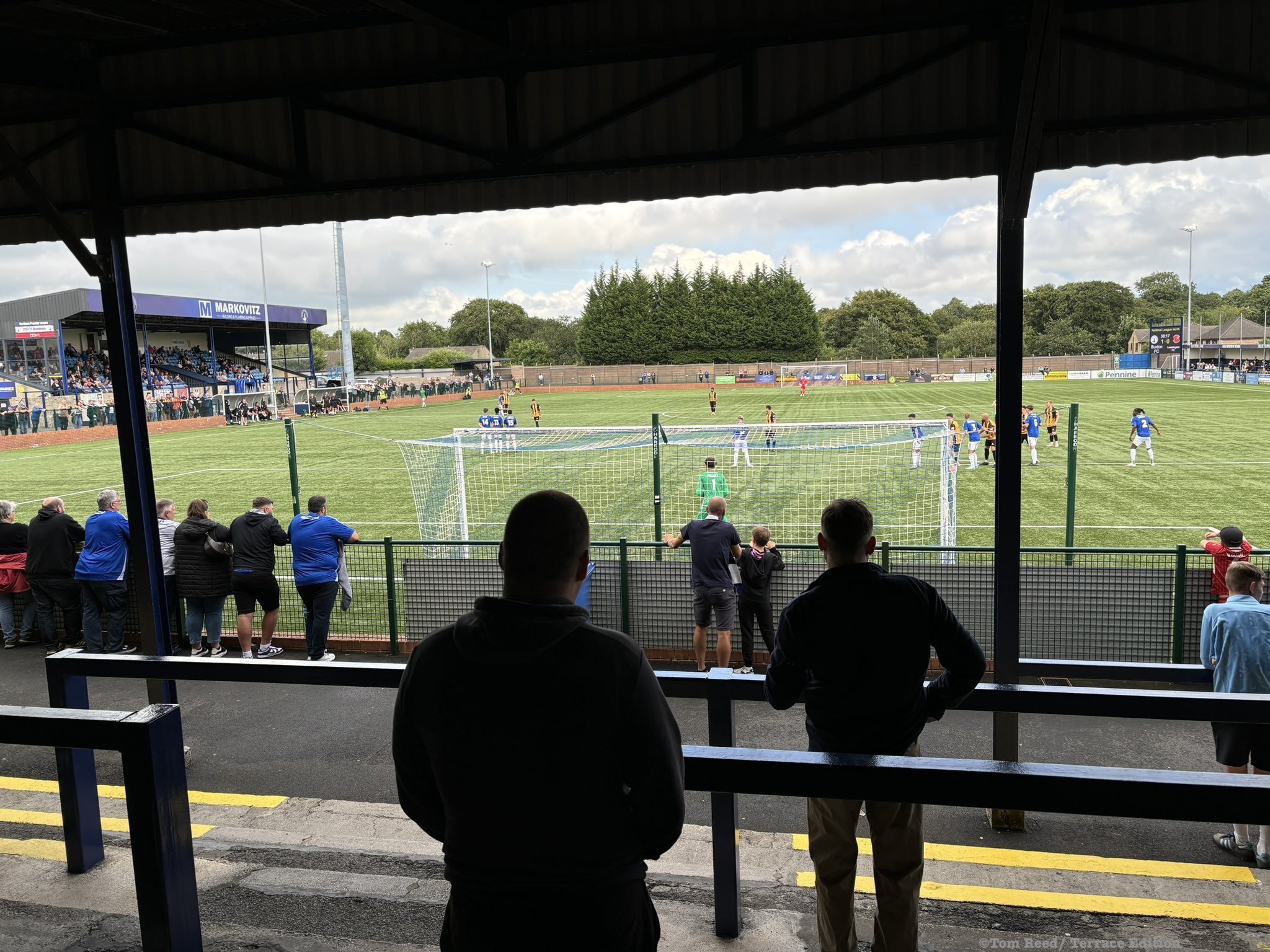Disappearing hands

How non-League football helped me come to terms with the death of my mother
Words: Tom Reed
Images: Tom Reed
The light always flickered on that walk up the corridor, past the nurses’ station and the other patients resting uneasy in their beds.
That gummy tack against my Adidas and visitors dwelling at vending machines rather than go back on the ward.
The Vimto spots on your hands that fit into mine like the Brio train-track we used to play with.
Across the room, there was an artist in her thirties, who has suffered a stroke and could barely talk to her young children on the phone.
She had slowly drawn you a picture of a forest with the words “Autumn teaches us how to let go” and a family member had pinned it on your bed frame.
I was angry and the drawing was discretely folded up, before eventually finding itself in the bin.
No-one tells my mother when it’s ok to die.
And when it happened with your calm readiness and no great revelations on the meaning of life or a denouement on the plot, I blocked it off for at least a year, a process to go through, with endless words of condolence but a yearning to sob raw, solitary tears, that wouldn’t show.
No more crisps that taste better from your crisp packet, no more flickering light.
The only number that always connected, didn’t answer any more.
An end to your struggle though, not just the mundane pain but the can’t be arsed indignity of ageing and something you hadn’t signed up for.
One of your favourite afternoon naps, extended.
Losing parents, if we are fortunate to have them in our lives, is the one human experience we go through at some point.
Men need their mums and men like to get their own way and bereavement of this kind strips us of both, whipping away our frail masculinity like the head of a Guinness, over-gripped in a plastic pint pot.
Grief hits you in the most unexpected of places.
I’d been to Old Trafford and Arsenal, trying to draw something out in a big crowd, but the shoulder to shoulder swarms left me numb and a football I couldn’t identify with.
Yet, somehow, non-League football offered a space to come to terms with your passing and places to be both caught up in the hubbub and by turns, completely alone.
It took a trip to Rugby Town FC in the United Counties League to bring the blub.
A vast, concrete ground where the fans rattled around and the sweeping, wet terraces in the rain and dark and light of the floodlights meant I could cry big, thick, melted Mars ice-cream tears while the old boys huddled with their hot teas.
There were players with shapes that looked like me and the cold felt so familiar and the walk along the concrete steps seemed like that unwanted traipse up the hospital corridor that I’d pay good money to do again, to see you.
Forwards that did all the hard work of mazy runs on goal but shinning the finish into touch.
Tears over silly moments, like the time you had to show the bosses around at the Tesco bakery and only after they’d gone did you realise you’d done the tour with a donut attached to your high heel.
At Clapton CFC I thought about how you always taught me to look out for people that are sidelined and uncared for. It’s a club that goes out of its way to make people feel welcomed, no matter their race, sexuality or if they are skint.
There was a short guy at your work, who people called “weasel” but you always told them to call him by his first name and built him up and gave him a job he was happy with till people didn’t call him weasel any more.
At Bury AFC in the North, I found a group of people that had lost everything in sporting terms and set up a new club in the spirit of the old. It reminded me about resilience and sticking together that you had instilled in us through your life.
They had a good craic in the bar there at the ground they shared with Radcliffe, the Shakers fans.
“Don’t forget to smile when you can, don’t take life too seriously if you can help it” you’d remind me.
At FC United of Manchester there was a banner that said “More Women At Football” and it was heartening that even in a laddish sport there is more room for kick-ass females, down the pyramid.
Likewise at Dulwich Hamlet, where the number of mothers with buggies and juggling wee’uns on their hips is a badge of honour.
It brought back my earliest memories of being in my pram in downpours and reaching for the clear plastic rain cover as you pushed me, content and warm to playgroup and marches in support of the striking miners.
Life is collection of cigarette burned moments and in the non-League, people are there for the retina flashes across goal and because, by and large, they care.
There’s no hefty wage packet at the end of it, no silverware of note, no big explanation on the meaning of life, no revelatory denouement on the plot.
Standing on the crumbling terraces of Atlético Clube de Portugal in Lisbon, an outfit that has seen better days, like all of us, I was able to laugh at the futility of it all.
Groundsmen tended the arid, bumpy pitch with their lawnmowers, almost colliding with each pass, doing a job that’ll need to be done again in a week’s time.
A janitor stared at terraces with deep crevices in them, armed with a small amount of cement.
One man and his cat and the cat is asleep in the dugout.
I felt a shift.
You had started letting go in Autumn but it took the June Portuguese sun on my neck to start doing so myself.
A simple sideways pass when I’d been trying to force a long diagonal.
Selfish feelings that aren’t that way at all, cradled then dissipated with the last squeeze of your fingers.
Sometimes you call for me in my sleep.
I don’t answer but it’s a comfort knowing one day I will and we’ll all be together with the people we love, laughing at all the moments we miscontrolled in this short 90 minutes.
I’ll reach for the clear plastic rain cover, you’ll have a donut stuck to your high heel.
Tom is Terrace Edition Editor and can be found on Twitter: @tomreedwriting









